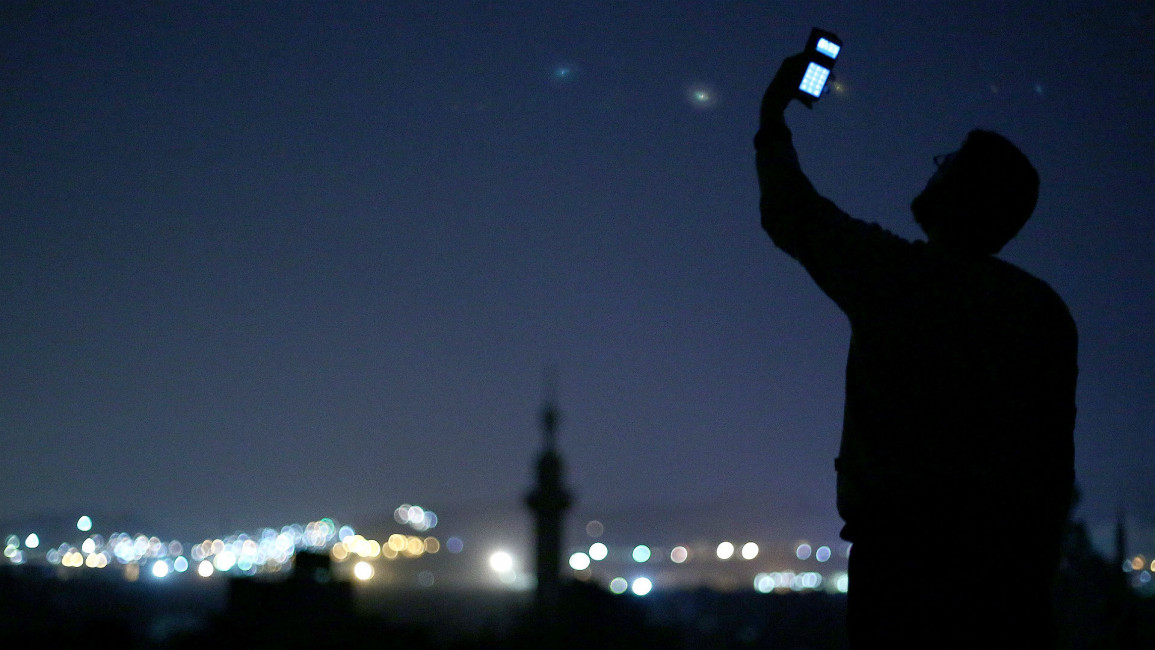Syrians use mobile phones, Facebook to escape hellish war
Syrian refugees are using Facebook groups to share experiences and find smugglers' phone numbers, WhatsApp to help the coast guard pinpoint their location once their boats have reached Greek waters, and Viber to let their families know they have landed safely, making smartphones a vital tool on their journey.
"Our phones and power banks are more important for our journey than anything, even more important than food," said Wael, a 32-year-old from the devastated Syrian city Homs who reached the Greek resort island of Kos on Thursday morning.
"We couldn't take anything with us on the boat, we were all so crammed. But these phones are our most precious belongings," he added.
Wael is among more than 135,000 refugees and migrants who have arrived in Greece this year, escaping deadly conflicts and poverty amid Europe's biggest refugee crisis since World War II.
"I wrapped my phone up in a resealable plastic bag to protect it from the water," said Wael who fled Syria with his wife and 12 relatives, including three children.
Documenting the journey
In Kos, Syrian refugees can be seen taking photographs of each other using their smartphones and congregating at local cafes where they can connect to Internet.
"We have taken photos of every step of our journey and sent them to our families," said Wael's cousin Raed, 30, adding that social media is a "vital" resource for refugees who have no legal way to reach Europe.
"No one gives us visas, so we have to find alternatives. On Facebook, we Syrians help each other and give each other advice," said Raed, who left his wife and ill six-month-old daughter behind.
He hopes to reach Germany, and once there apply to be reunified with his family.
"There are entire conversations about which country is best for each person. For instance, Germany is good for family reunification. Sweden is good because you get your papers immediately," he said, citing information he found on social media.
Aside from Lebanon, where he lived in misery with his family as a refugee for some 18 months, Raed had never left Syria before going to Turkey and then Greece.
A resource for refugees
"Asylum and migration in all Europe" and "Asylum in Sweden, Holland, Norway, Germany, Britain, Austria and Switzerland" are just two of dozens of Facebook groups that Syrians are operating and using to learn about the perilous, in some cases deadly journey to Europe.
A fourth, closed group called "Bus stop for the lost ones" is one of the most popular, boasting more than 42,000 members.
The questions and ensuing conversations are varied and detailed. "Guys, in which German federal state should I hand myself over to the police? Where will I get a residence permit the quickest?" asks one user.
"Thank God... We have arrived on the (Greek) island of Chios," wrote another user, posting a picture of himself and two other young men, one of them flashing a victory sign.
"If I get residence in Germany, will I be allowed to travel to Lebanon?" asks a third.
"Quickly, quickly! I need a hotel in Belgrade, does anyone have any addresses?" inquires a fourth.
"We do this to help each other," explained Said, a 22-year-old computer-engineering student from the besieged town of Daraya, southwest of Damascus.
"We want to help our fellow Syrians so no one gets cheated by smugglers. So whenever someone finds a smuggler who charges less, his phone number gets passed around," he added.
Said, who was a non-violent activist in the Syrian revolt, believes documenting the journey to Europe is as important as detailing the violence at home.
"We Syrians took pictures of every protest and every massacre. We aren't going to stop sharing our stories now. Migration is part of our story now," he said.



